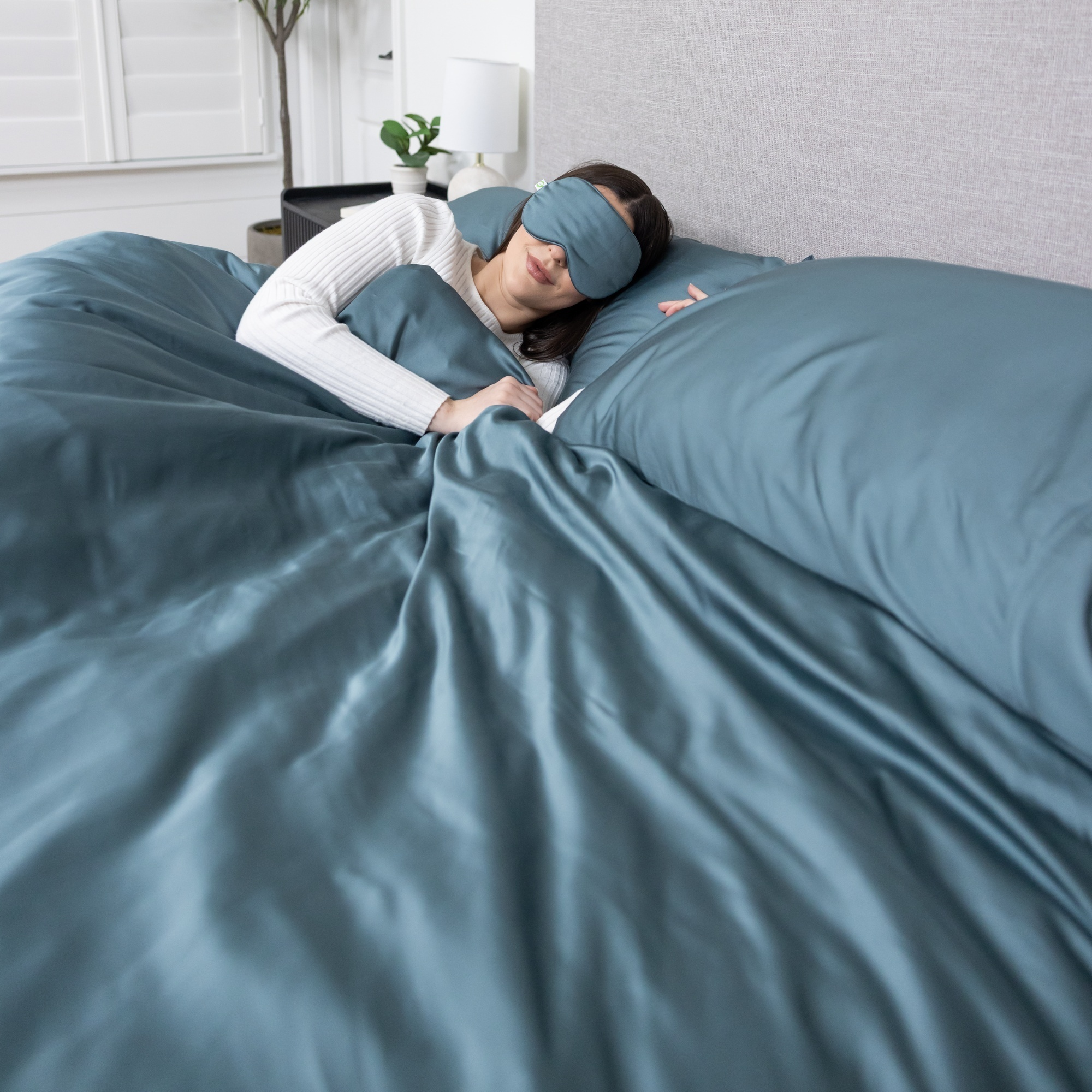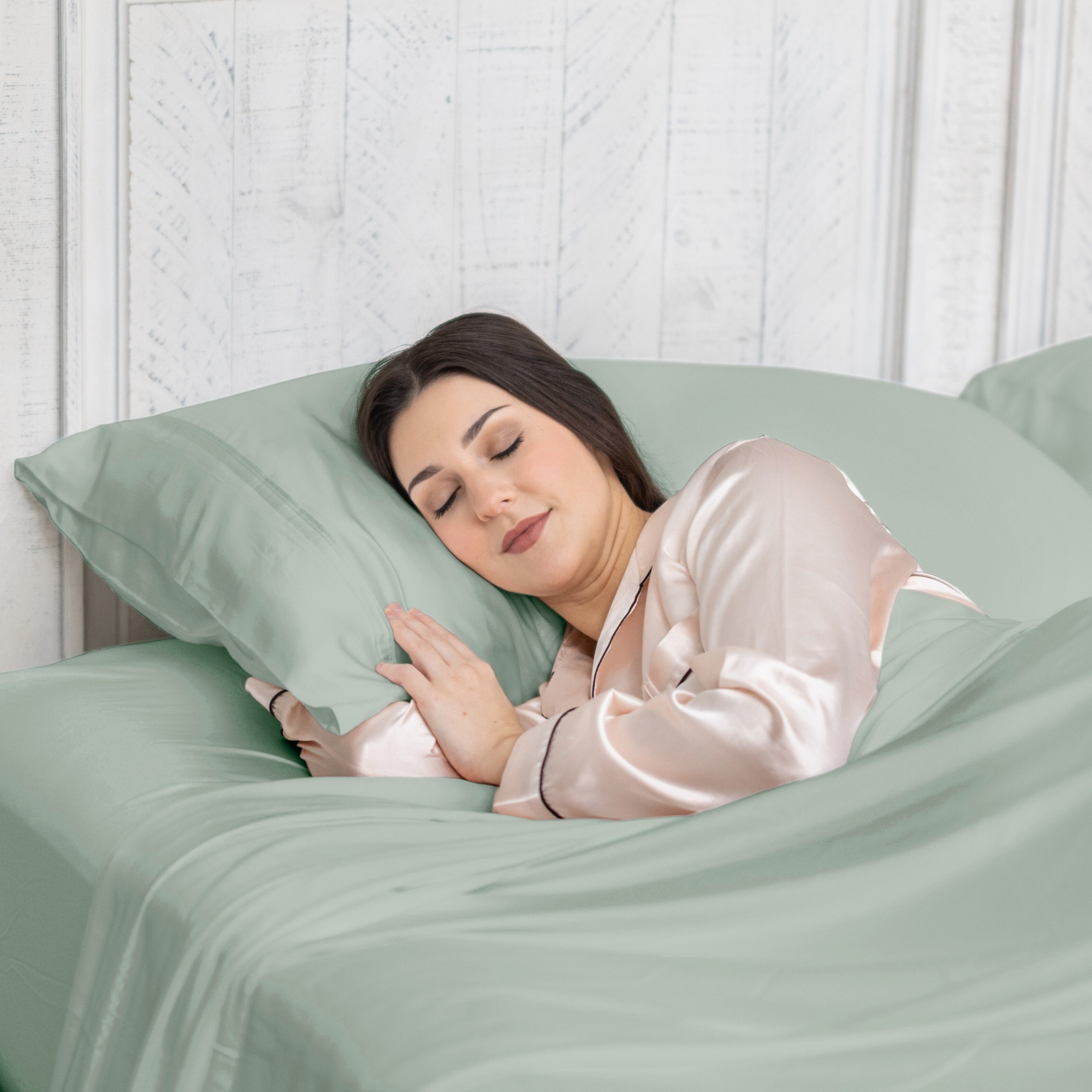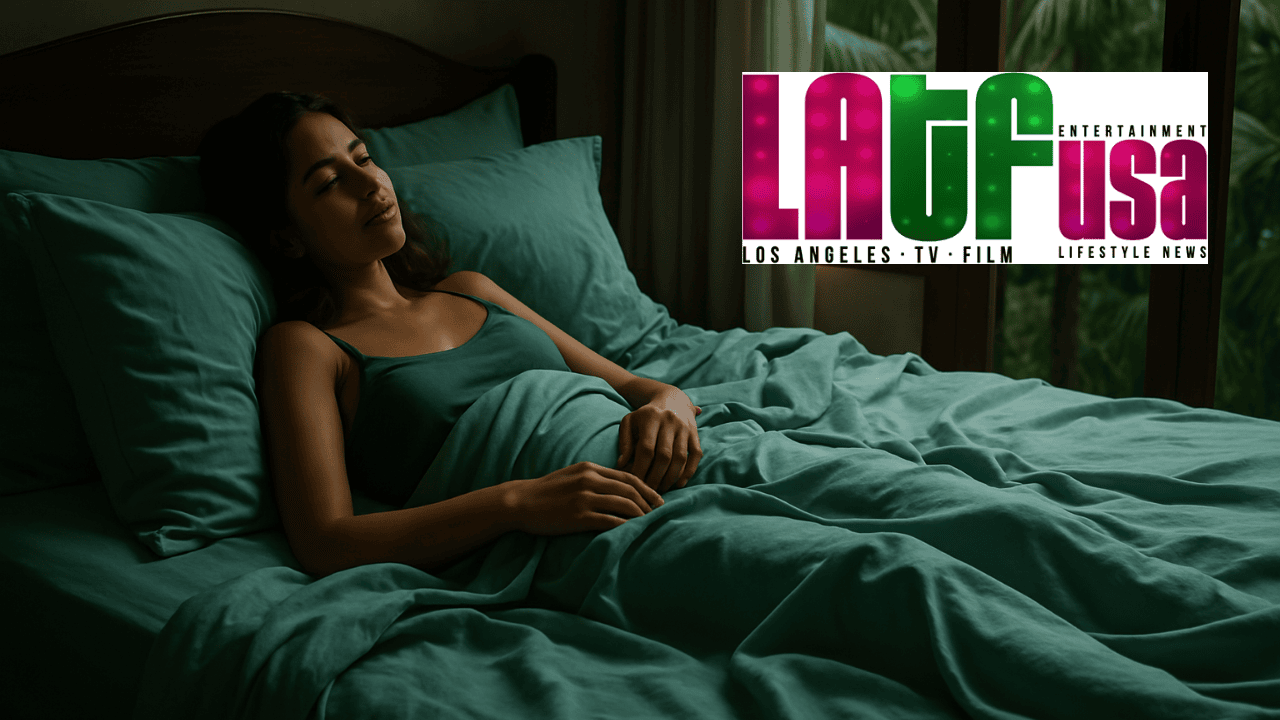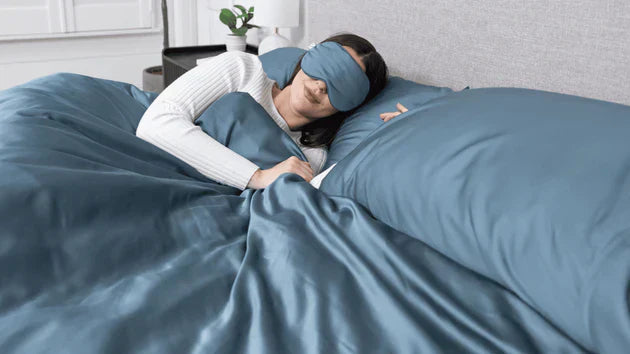Sleep Isn’t a Luxury—It’s Your Ultimate Performance Tool

Sleep is not optional—in fact, it is the ultimate performance enhancer. Whether you are an Olympic athlete, a CEO managing high-stakes decisions, or a parent balancing endless responsibilities, the quality of your rest determines how you show up in every aspect of life.
That is why Dr. Shane Creado, a sleep medicine physician and performance coach, has distilled years of research and clinical experience into practical, science-backed strategies for better sleep. And when paired with the right environment—like the comfort, breathability, and sustainability of Greenleaf Linens’ bedding—these strategies can transform your nights and supercharge your days.
Here are some of Dr. Creado’s sleep tips that are powerful yet easy to build into your nightly routine
1. The Sleep Diet: What You Eat Matters
Sleep starts during the day. Dr. Creado emphasizes hydration, steady blood sugar, and mindful eating to set the stage for restorative rest:
-
Avoid food at least 2 hours before bed.
-
Limit sugar, fast carbs, and heavy fats at dinner.
-
Alcohol cut-off: 4 hours before bedtime.
-
Caffeine and nicotine cut-off: 2–3 PM.
-
Evening meals: lean proteins paired with slow carbs like sweet potatoes, avocado, or carrots.
Even a small indulgence—like a late-night snack or post-dinner espresso—can steal hours of restorative sleep. Think of your evening nutrition as groundwork for a calm, deep night.
2. Your Bedroom = Your Sleep Sanctuary
Dr. Creado’s advice is simple: your bedroom should feel like a cave—a private retreat where your body immediately recognizes it is time to rest.
-
Temperature: 65–70°F (18–21°C).
-
Humidity: 45–55%.
-
Lighting: soft, warm lamps instead of harsh LEDs.
-
Remove distractions: no screens, no clocks, and, if possible, no pets in bed.
Greenleaf Linens naturally complements this environment. Breathable bamboo and cotton fibers wick moisture, regulate temperature, and feel soft against the skin. Paired with hypoallergenic bedding and a supportive pillow, your bedroom becomes the ultimate cocoon for restorative sleep.
3. The Right Bedding: Comfort Meets Science
Sleep is a physical process. Misaligned spines, overheating, or allergy-triggering bedding can prevent deep, restorative rest. Dr. Creado recommends:
-
A firm yet adaptive mattress (springs + memory foam).
-
Natural fibers such as organic bamboo for optimal breathability.
-
Thread counts between 400–600 for the sweet spot of softness and durability.
-
Proper pillow support to align the spine.
-
Weighted blankets (about 10% of body weight) to calm the nervous system.
-
Layered bedding to adjust temperature throughout the night.
Greenleaf Linens was designed with these principles in mind: premium, eco-friendly fabrics, craftsmanship that balances softness with longevity, and designs that help you wake refreshed. Even the best sleep strategies need the right foundation.
4. Timing: Consistency is Key
Optimal sleep isn’t just about hours—it’s about regularity. Dr. Creado advises setting a fixed wake-up time every day, including weekends. From there, work backward to determine your bedtime:
-
Example: Need 7.5 hours? Wake up at 7:30 a.m. → bedtime is midnight.
-
Block one hour before bed (11 p.m.) for a wind-down routine.
Your brain needs a gradual “dimmer switch” for sleep. A consistent pre-bed routine signals your body that it is time to rest.
5. The Wind-Down Ritual
One hour before bed, engage in calming, screen-free activities outside the bedroom:
-
Journaling or writing a to-do list.
-
Gentle yoga, stretching, or breathing exercises.
-
Warm bath or sauna.
-
Guided meditation, prayer, or light reading.
Avoid stimulating conversations or last-minute emails. This ritual allows your mind to glide gently toward restorative sleep.
6. Mindset: Let Go of Sleep Anxiety
Many people struggle not because they cannot sleep, but because they fear not sleeping. Dr. Creado calls this sleep anxiety.
-
Replace worry with humor: “Let’s see if I can survive on less sleep tonight” instead of “I’ll fail tomorrow if I don’t sleep.”
-
Stop forcing sleep—the more you try, the harder it becomes.
Shifting your mindset often transforms restless nights into hours of peaceful slumber.
7. Breathing: Your Nervous System’s Volume Knob
Your breath directly influences your nervous system. Slower, deeper breathing lowers heart rate and helps you drift into sleep faster.
-
Physiological sigh: inhale → small second inhale → long exhale.
-
4-7-8 technique: inhale 4 sec → hold 7 sec → exhale 8 sec.
-
3-3-6 technique: balanced inhale-hold-exhale.
Even elite athletes and military personnel use these methods to transition into calm states quickly.
8. Calming Practices & Non-Sleep Deep Rest
Not every night is perfect. NSDR (non-sleep deep rest) techniques mimic the recovery benefits of sleep:
-
Progressive muscle relaxation.
-
Transcendental meditation or chanting.
-
Self-hypnosis or vagal nerve stimulation.
Even if you don’t fall asleep immediately, these practices give your brain and body restorative downtime.
9. Cognitive Shuffling: Trick Your Brain
Racing thoughts keeping you awake? Cognitive shuffling scrambles the brain’s planning mode:
-
Pick a word (like “bedtime”).
-
Go letter by letter, thinking of words starting with each letter while visualizing them.
This mental exercise distracts your mind from problem-solving and planning, easing the way into sleep.
10. Middle-of-the-Night Awakenings
Waking at 3 a.m.? Dr. Creado advises:
-
Don’t check the clock.
-
If awake for ~20 minutes, get up and do a calm, low-light activity.
-
Avoid stimulating tasks like emails or chores.
-
Return to bed only when sleepy.
These strategies prevent frustration from compounding insomnia.
11. Waking Up Right
Start your day intentionally:
-
Keep your wake-up time consistent.
-
Get sunlight for 20–30 minutes to regulate melatonin and boost alertness.
-
If sunlight is limited, use a 10,000 lux light box or wearable light device.
-
Hydrate, breathe deeply, and move your body with gentle stretches or light exercise.
Sleep as a Superpower
Dr. Creado’s strategies are more than bedtime tips—they are a framework for reclaiming your most vital human function. Eating, thinking, and breathing with sleep in mind sharpens focus, strengthens immunity, and builds resilience.
When paired with bedding engineered for comfort and performance—like Greenleaf Linens’ breathable bamboo and natural cotton sheets—you give yourself the ultimate edge.
Sleep better. Wake stronger. Perform at your peak.
- Tags: Dr. Shane Creado Peak Sleep






